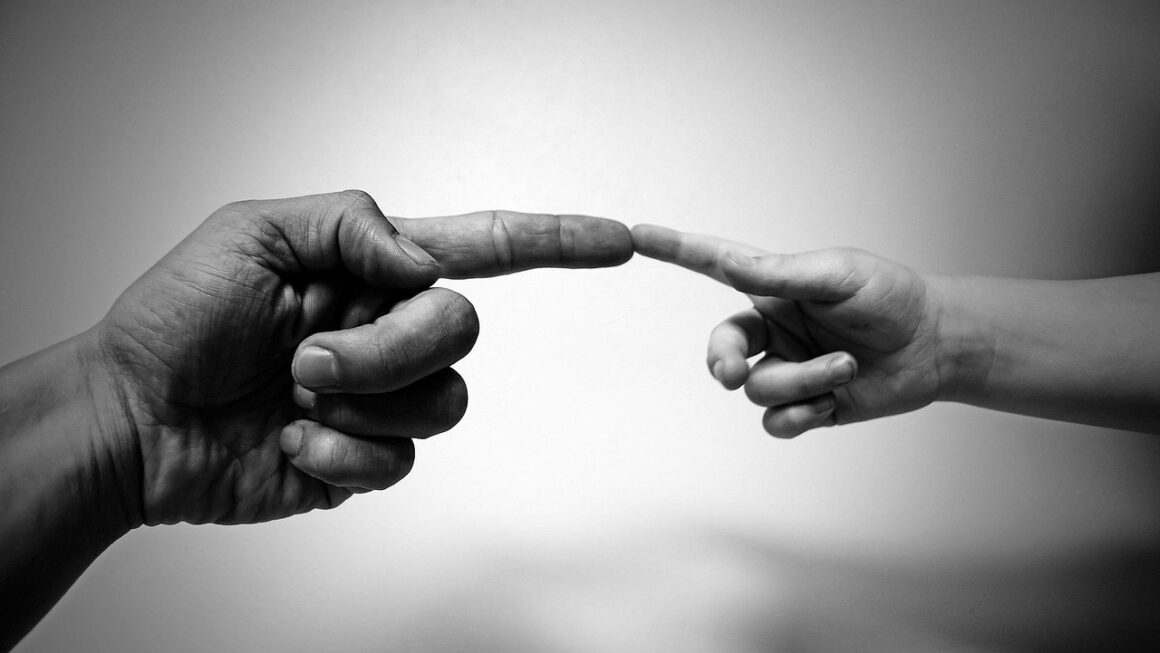A fulfilling and lasting relationship is a goal many people share, yet the path to achieving it can often feel complex and overwhelming. Navigating communication challenges, conflicting desires, and the evolving dynamics of a partnership requires skill, understanding, and often, a fresh perspective. That’s where a relationship coach comes in. This blog post will delve into the world of relationship coaching, exploring what it is, who it’s for, and how it can help you build stronger, healthier, and more satisfying connections.
What is a Relationship Coach?
Defining Relationship Coaching
A relationship coach is a trained professional who provides guidance, support, and tools to individuals and couples seeking to improve their relationships. Unlike therapists, who often focus on deeper psychological issues and past traumas, relationship coaches typically concentrate on present-day challenges and future goals. They work with clients to identify patterns of behavior, develop effective communication strategies, and build stronger emotional intimacy.
- Focus on the Present and Future: Relationship coaching is action-oriented, focusing on practical strategies to improve current relationships and create a more fulfilling future.
- Skill-Building and Empowerment: The goal is to empower clients with the skills and knowledge they need to navigate relationship challenges independently.
- Collaborative Approach: Coaching involves a collaborative partnership between the coach and the client, with the client actively participating in the process.
Relationship Coach vs. Therapist: Understanding the Difference
While both relationship coaches and therapists aim to improve well-being, their approaches and areas of expertise differ significantly.
- Therapists: Focus on addressing underlying emotional issues, mental health concerns, and past traumas that may be affecting relationships. They often use diagnostic tools and therapeutic techniques like Cognitive Behavioral Therapy (CBT) or Emotionally Focused Therapy (EFT).
- Relationship Coaches: Concentrate on providing practical tools and strategies for improving communication, conflict resolution, and intimacy. They focus on present-day challenges and future goals, rather than delving into the past.
For example, a couple dealing with recurring arguments about finances might benefit from a relationship coach who can help them develop a budget, improve communication about spending habits, and set shared financial goals. On the other hand, if those arguments stem from deeper issues related to trust or past trauma, a therapist might be a more appropriate choice.
Who Benefits from Relationship Coaching?
Individuals Seeking Relationship Readiness
Relationship coaching isn’t just for couples; it’s also beneficial for individuals who want to prepare for future relationships or improve their understanding of relationship dynamics.
- Singles Seeking Guidance: Individuals who are dating or want to be in a relationship but struggle to find or maintain healthy connections can benefit from coaching on dating strategies, communication skills, and identifying red flags.
- Individuals Recovering from Breakups: Coaching can help individuals process the emotions following a breakup, learn from past mistakes, and develop a healthier approach to future relationships.
- Those Seeking Self-Improvement: Even individuals who aren’t currently in a relationship can benefit from relationship coaching to improve their communication skills, build self-esteem, and develop a better understanding of their own needs and desires in a partnership.
Couples Navigating Challenges
Relationship coaching is particularly effective for couples facing various challenges, including:
- Communication Issues: Difficulty expressing needs, understanding each other’s perspectives, or resolving conflicts constructively. For instance, a coach might teach active listening skills, empathy exercises, and strategies for de-escalating arguments.
- Lack of Intimacy: Emotional or physical distance, decreased affection, or difficulty connecting on a deeper level. A coach might guide couples in rediscovering shared interests, practicing vulnerability, and exploring ways to enhance physical intimacy.
- Trust Issues: Infidelity, betrayal, or other breaches of trust that have damaged the relationship. While a therapist is often required for deeper trauma related to betrayal, a relationship coach can help with rebuilding communication and trust-building exercises once the core issues have been addressed therapeutically.
- Navigating Life Transitions: Major life events such as marriage, parenthood, career changes, or relocation can put stress on a relationship. A coach can help couples navigate these transitions effectively, maintain connection, and adapt to new roles and responsibilities.
Premarital Coaching: Setting the Stage for Success
Premarital coaching is a specific type of relationship coaching designed for couples preparing to get married. It focuses on building a strong foundation for a lasting marriage by addressing key areas such as communication, finances, family dynamics, and future goals.
- Defining Expectations: Ensuring both partners are on the same page regarding key life decisions and expectations for the marriage.
- Developing Conflict Resolution Skills: Learning effective strategies for resolving disagreements and navigating conflict constructively.
- Strengthening Communication: Improving communication skills to foster understanding, empathy, and emotional connection.
- Preparing for Life Transitions: Discussing potential challenges and preparing for the transitions that come with marriage and family life.
Benefits of Working with a Relationship Coach
Improved Communication Skills
One of the primary benefits of relationship coaching is the development of improved communication skills. Coaches help clients learn how to express their needs and desires clearly, listen actively to their partner, and communicate effectively even during difficult conversations.
- Active Listening: Learning to truly listen to your partner without interrupting or judging.
- Non-Violent Communication: Expressing your needs and feelings in a way that is respectful and avoids blame.
- Empathy and Understanding: Developing the ability to understand and appreciate your partner’s perspective, even when you disagree.
For example, a coach might work with a couple to practice “I” statements, which allow them to express their feelings without blaming or accusing their partner. Instead of saying, “You always make me feel ignored,” they might say, “I feel ignored when you don’t respond to my texts.”
Enhanced Emotional Intimacy
Relationship coaching can help couples deepen their emotional connection and build stronger intimacy. This involves fostering vulnerability, sharing emotions openly, and creating a safe space for emotional expression.
- Vulnerability and Authenticity: Being willing to share your true self with your partner, including your fears, insecurities, and desires.
- Emotional Support and Validation: Providing your partner with emotional support and validating their feelings, even when you don’t understand them.
- Creating a Safe Space: Fostering an environment where both partners feel comfortable expressing their emotions without fear of judgment or criticism.
Healthier Conflict Resolution
Conflict is a natural part of any relationship, but the way couples handle conflict can significantly impact the health and longevity of their partnership. Relationship coaches provide tools and strategies for resolving conflicts constructively and avoiding destructive patterns of behavior.
- Identifying Conflict Patterns: Recognizing recurring patterns of conflict and understanding the underlying causes.
- De-escalation Techniques: Learning strategies for calming down during arguments and preventing them from escalating.
- Compromise and Collaboration: Finding solutions that meet the needs of both partners and foster a sense of collaboration.
Increased Self-Awareness
Relationship coaching encourages self-reflection and increased self-awareness. Clients gain a deeper understanding of their own needs, desires, and patterns of behavior in relationships.
- Identifying Triggers: Recognizing the situations or behaviors that trigger negative emotions or reactions.
- Understanding Your Attachment Style: Learning about your attachment style and how it influences your relationship behaviors.
- Recognizing Your Needs: Identifying your core emotional needs in a relationship and learning how to communicate them effectively.
How to Find a Relationship Coach
Credentials and Experience
When choosing a relationship coach, it’s essential to consider their credentials, experience, and areas of expertise. While relationship coaching is not a regulated profession, look for coaches who have completed relevant training programs or certifications in coaching, communication, or relationship dynamics. Also, consider their experience working with clients facing similar challenges.
- Certifications: Look for certifications from reputable coaching organizations.
- Experience: Consider the coach’s experience working with couples or individuals facing similar challenges.
- Specialization: Some coaches specialize in specific areas, such as premarital coaching, infidelity recovery, or communication skills.
Finding the Right Fit
Finding a relationship coach who is the right fit for you is crucial for success. Look for someone you feel comfortable talking to, who understands your needs, and who provides a supportive and non-judgmental environment.
- Initial Consultation: Schedule an initial consultation to discuss your needs and goals and get a sense of the coach’s approach.
- Personality and Style: Consider the coach’s personality and communication style and whether they align with your preferences.
- Client Testimonials: Read client testimonials to get an idea of the coach’s effectiveness and the experiences of other clients.
Online vs. In-Person Coaching
Relationship coaching is available both online and in person. Online coaching offers greater flexibility and convenience, while in-person coaching allows for more direct interaction and a deeper connection.
- Online Coaching: Offers flexibility and convenience, allowing you to connect with a coach from anywhere.
- In-Person Coaching: Provides a more direct interaction and a deeper connection with the coach.
Consider your preferences and lifestyle when choosing between online and in-person coaching. Many coaches offer a combination of both options to accommodate different needs and schedules.
Conclusion
Investing in relationship coaching can be a powerful step towards building stronger, healthier, and more fulfilling connections. Whether you’re an individual seeking to improve your dating life or a couple facing challenges, a relationship coach can provide the guidance, support, and tools you need to navigate the complexities of relationships and create a lasting partnership. By focusing on present-day challenges, skill-building, and a collaborative approach, relationship coaching empowers individuals and couples to create a more positive and fulfilling future together. If you’re ready to take your relationship to the next level, consider exploring the benefits of working with a qualified and experienced relationship coach.




